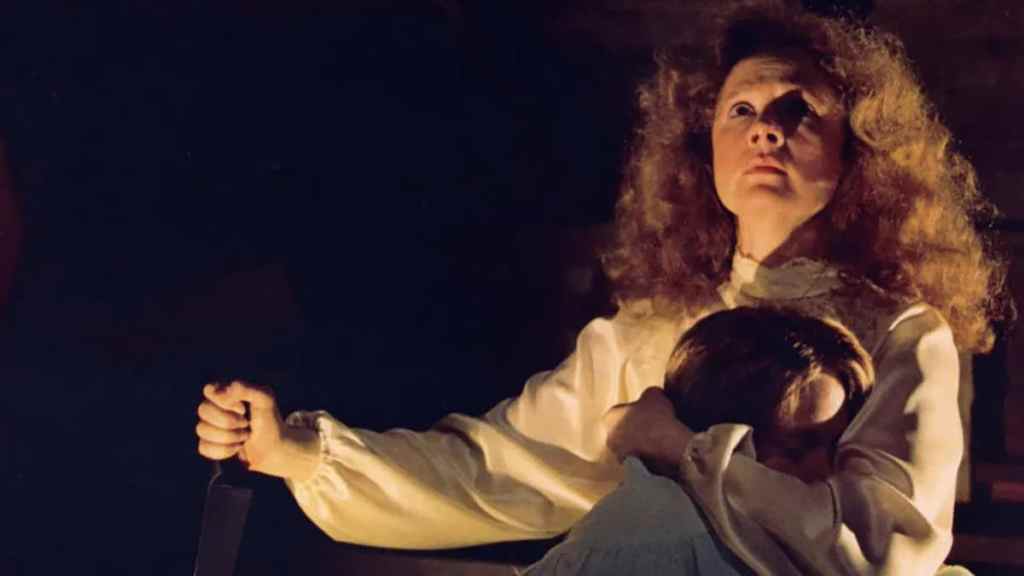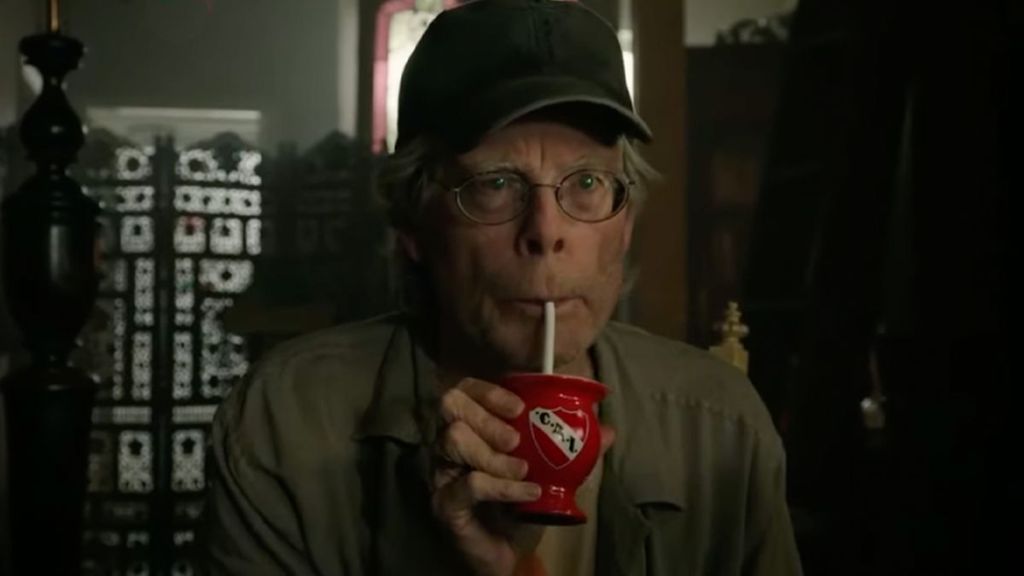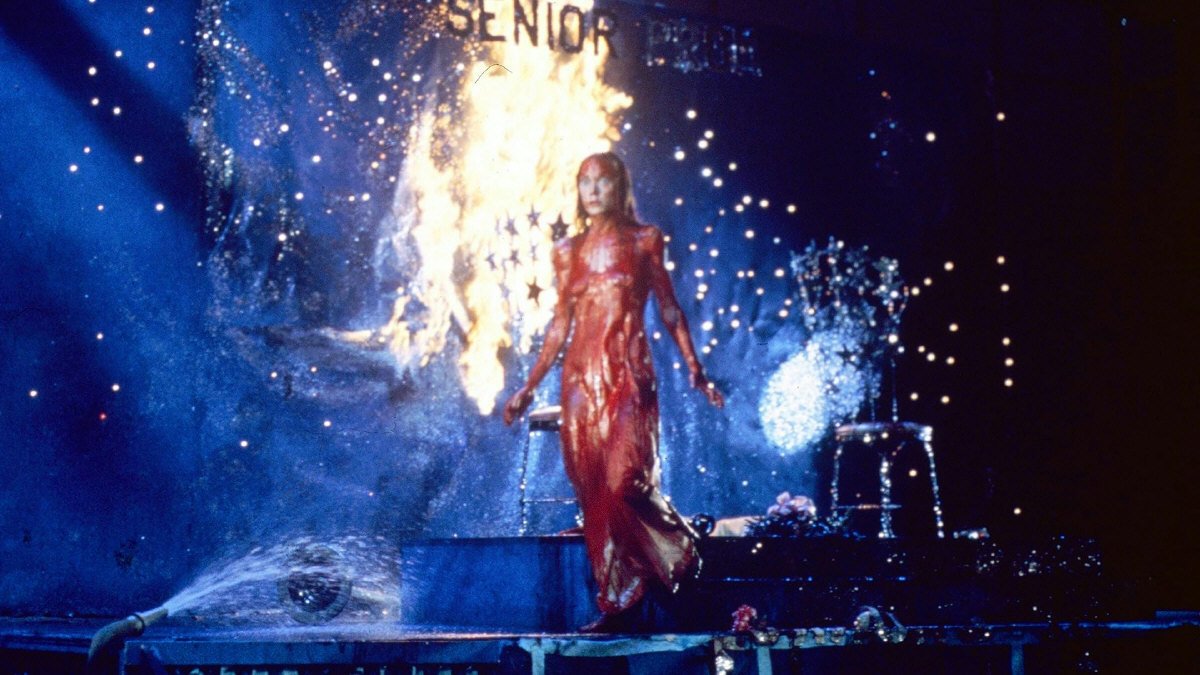Rotten Tomatoes is not the end-all, be-all of cinema criticism. Considering it boils everything down to either positive or negative, it’s actually pretty far from. Yet, when it comes to Stephen King adaptations, it’s pretty on-point. For instance, the highest-rated cinema adaptation of his work ever to hit the big screen (or small) is still the first one: Brian De Palma’s Carrie.
With a 93% “Fresh” rating, it remains the pinnacle of positively rated King adaptations, though there are a few that give it a run for its adoration money. This includes the second cinematic adaptation of his work: Stanley Kubrick’s The Shining. Though even that masterpiece is a full ten percentage points below Carrie.
Videos by ComicBook.com
Speaking of The Shining, it is many cinephiles’ pick for the best King adaptation, even if the author’s feelings on it have been well documented. Rob Reiner’s Stand by Me, Reiner’s Misery, and, especially, Frank Darabont’s The Shawshank Redemption are all also as beloved as De Palma’s atmospheric frightmare, if not more so. Even still, there’s a solid argument to be made that Carrie was and remains the most purely successful adaptation of the author’s bibliography.
What Makes Carrie the Best King Adaptation?

Carrie was King’s debut novel. And, when that novel hit shelves in 1974, it immediately announced him as a talent to watch. Director De Palma had it recommended to him by a mutual friend of his and King’s, liked it, and moved to buy up the rights to a cinematic adaptation. Back then, cinematic adaptations of successful books weren’t a given, so to his surprise, no one had yet scooped up the rights to adapt it.
Furthermore, while the novel’s success did announce King as a formidable talent, he was yet to be a household name and was paid only $2,500 for the film rights. De Palma, also, was not quite a household name, and he wasn’t given much of a budget (less than $2 million) to craft the film. After all, his first real success, Obsession, was released only three months prior to Carrie hitting the big screen, and it was more of a critical success than a blockbuster.
[RELATED – Netflix’s Best Stephen King Movie Was Described as “Unfilmable” for Decades]
Getting De Palma while his directorial star was on the rise was a blessing. Oftentimes, Carrie functions as a character-focused indie more than it does something that’s relying on its high-concept hook to capture the audience’s attention, like other successful horror films of the ’70s. The Omen certainly focuses on the Thorn family, but its real selling point is the series of increasingly elaborate death scenes for the supporting characters. At its core, The Exorcist is a heartbreaking tale of a mother’s struggle to protect her daughter from something she simply can’t combat, but what really got the film all of its sold-out auditoriums was the word of mouth regarding scenes such as the iconic head spin.
But, Carrie‘s devout attention to character building wouldn’t have been pulled off without a hitch were the right people not cast in the parts. And, across the board, Carrie was extremely well-cast. This includes the two most important roles: Carrie and Margaret White.
De Palma auditioned quite a few up-and-coming performers for the title role, such as Melanie Griffith, Farrah Fawcett, and The Exorcist‘s Linda Blair. But Sissy Spacek was determined, and she understood that the role didn’t require typical Hollywood glitz and glamour looks, as it required the appearance of long-term abuse and solitude. She arrived at the audition with her face unwashed and in an old, conservative dress, and ended up securing the part.
Spacek never had the reputation for possessing traditional movie star looks, and in the case of Carrie, that’s a perfect fit. Standing next to Nancy Allen and P. J. Soles, she does come across as the odd woman out, and Spacek’s mastery of reserved, quiet performances only helps cement the effect. Piper Laurie’s work as Margaret White is quite the opposite.
Neither Spacek nor Laurie were brand new on the scene (Carrie was Spacek’s fourth feature film, with the first three including her star-making work in Terrence Malick’s phenomenal Badlands), but Laurie was certainly the more seasoned performer, having secured an Academy Award nomination 15 years prior for her work in The Hustler. Be it in terms of strength of performance or the utter juxtaposition of performance type, they’re a match made in Heaven (or, perhaps, Hell).
Speaking of The Hustler, Carrie was Laurie’s first role since that 1961 classic. And, in breaking that career lull, she found herself netting her second of three Academy Award nominations, this time for Best Supporting Actress. Spacek also received an Academy Award nomination, the first of six Best Actress nominations she’s received to date (including a win the second time for Coal Miner’s Daughter). In short, were Spacek and Laurie not the ones inhabiting their roles, Carrie wouldn’t be the utter well-aged powerhouse it is.
Other Standout King Titles

As mentioned, one’s favorite King adaptation is entirely dependent on the viewer’s taste. But suffice it to say, Carrie got the ball rolling in a major way. And, in time, it has been joined by some very worthy company. There’s the aforementioned The Shining, Stand by Me, and The Shawshank Redemption, but other noteworthy entries include David Cronenberg’s The Dead Zone, John Carpenter’s Christine, Taylor Hackford’s Dolores Claiborne, Frank Darabont’s The Mist, Andy Muschietti’s It, and Mike Flanagan’s Gerald’s Game.
Like Darabont and Reiner before him, Flanagan is someone who really knows how to craft a King tale for the big or small screen. He followed Gerald’s Game up with the woefully underrated semi-sequel to The Shining, Doctor Sleep, before moving on to festival darling The Life of Chuck. That film had its premiere at TIFF in early September 2024 and will see a wide release in 2025. His next King adaptation? Another Carrie adaptation, this time for a streaming service.
In terms of what else comes next, quite a bit. We seem to be in the midst of the biggest boom of King adaptations to date, with 2025 alone serving as the release year for Chuck, Osgood Perkins’ The Monkey, and Edgar Wright’s new take on The Running Man. Beyond that, Francis Lawrence’s The Long Walk, Bryan Fuller’s new take on Christine, Paul Greengrass’ Fairy Tale, Jim Mickle’s From a Buick 8, Lynne Ramsay’s The Girl Who Loved Tom Gordon, and adaptations of Elevation, Billy Summers, The Little Green God of Agony (part of the multi-author anthology A Book of Horrors), and Throttle (a novella co-written by King and his son, Joe Hill) are all in various stages of development.
One might note that the directors attached to these projects are all fairly prestigious figures. Like with De Palma and Carrie, King’s attention to the human element so prevalent and vital in effective horror attracts serious talent. When Carrie succeeded both critically and commercially, it set a mighty high bar for subsequent adaptations to try and meet. Maybe that alone is an argument for it being the “best.”
Carrie and its 2013 remake are now streaming on Amazon Prime Video.

